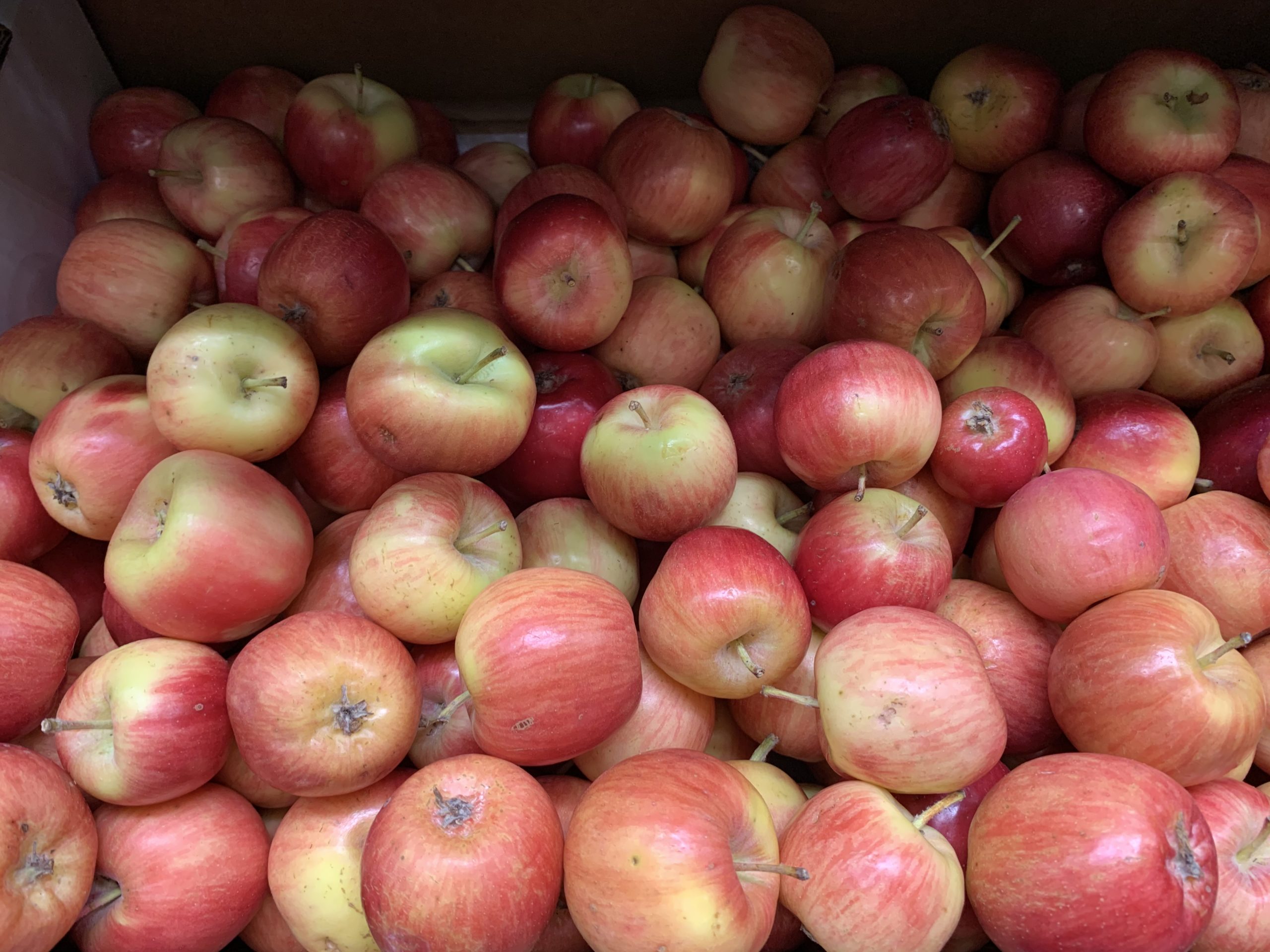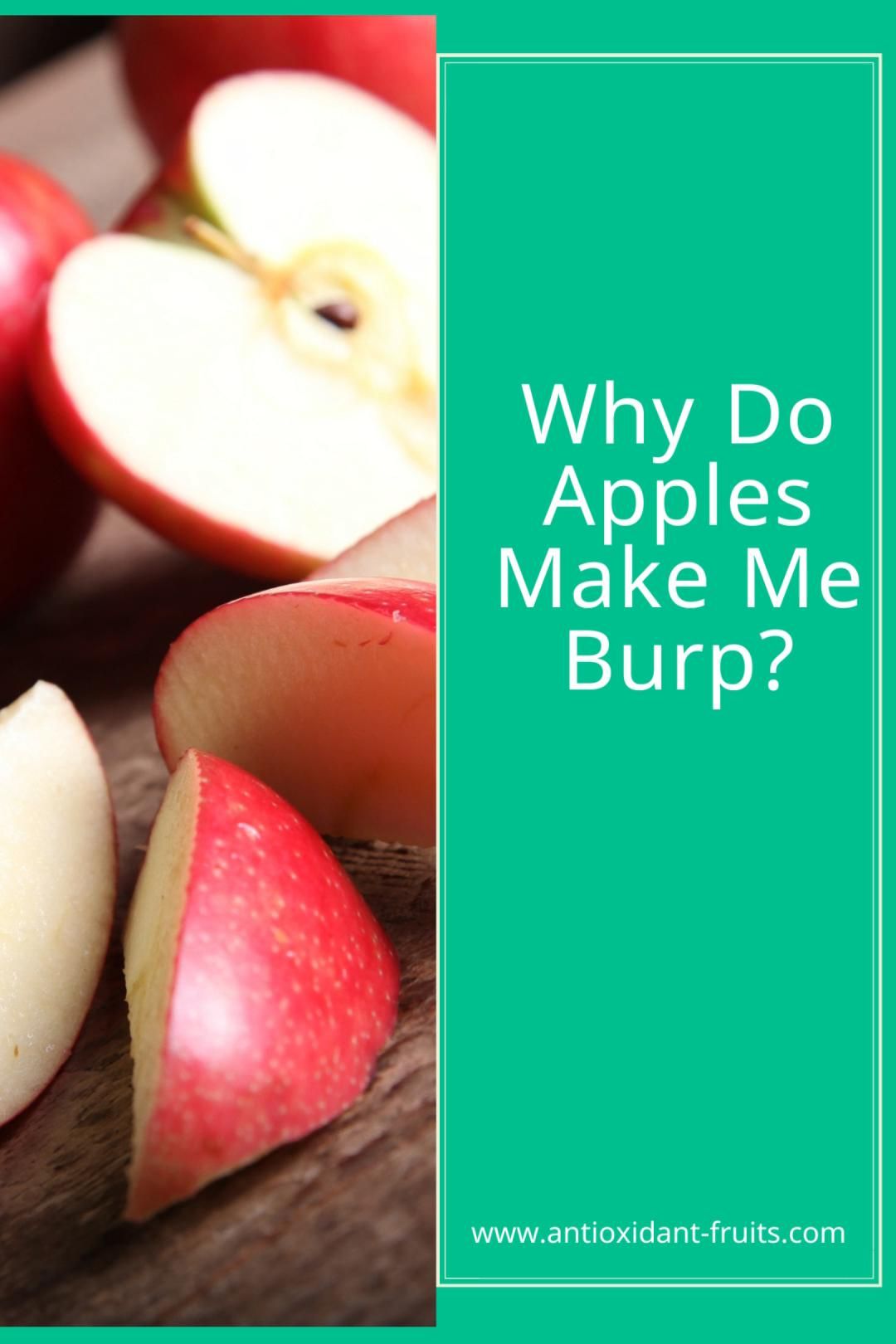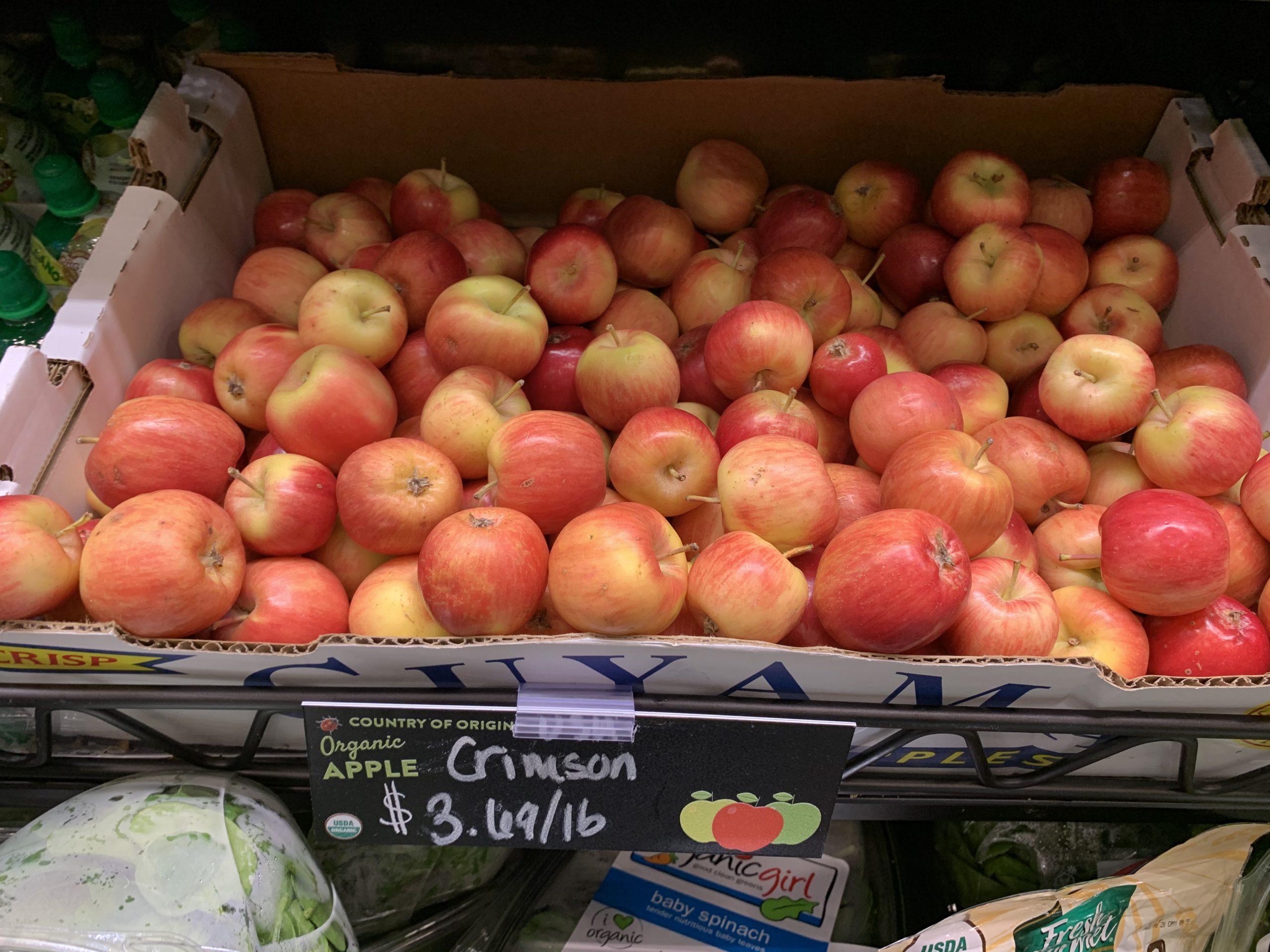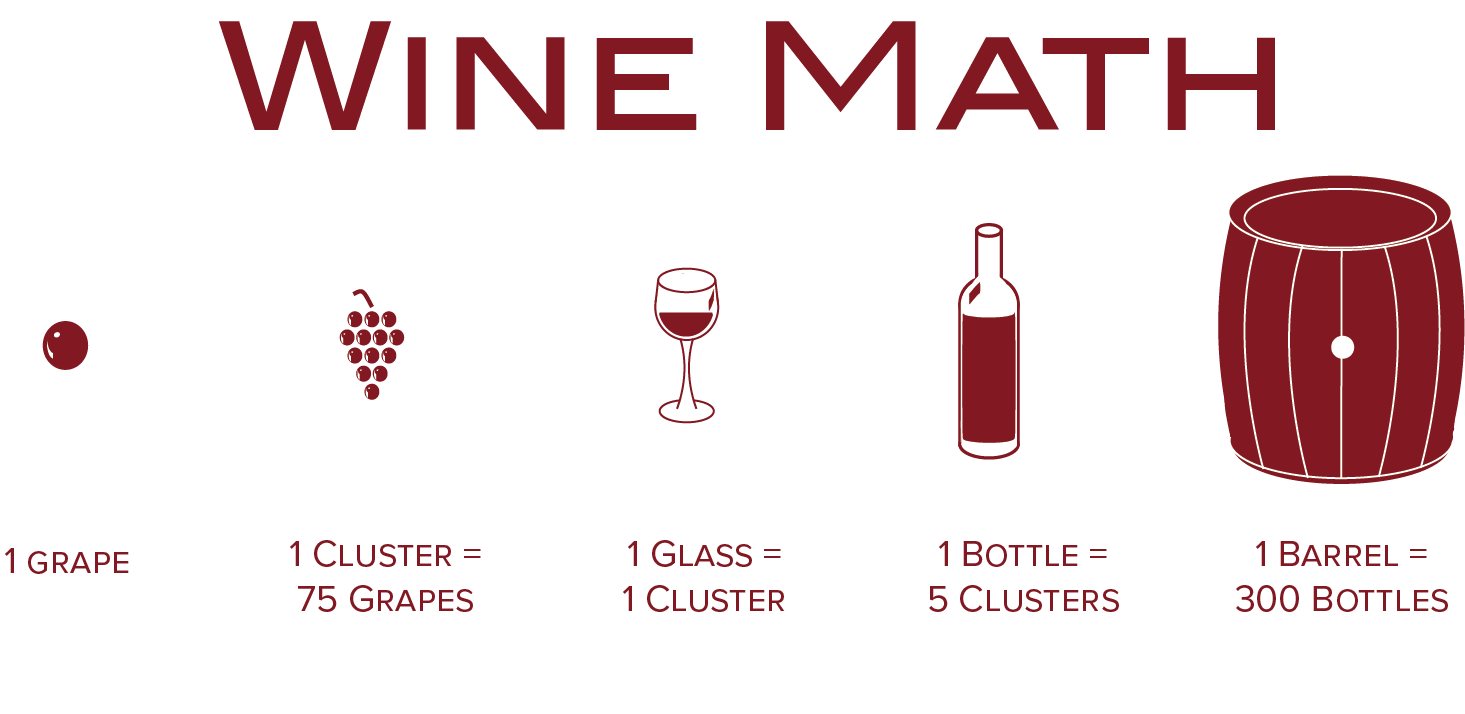Imagine biting into a juicy apple, savoring its crispness and natural sweetness. As you enjoy this healthy snack, you may find yourself letting out an unexpected burp. But have you ever wondered why eating apples can trigger this belching sensation? The answer lies in the science behind our digestive system. When we eat apples, the high sugar and fiber content can cause fermentation in our gut, producing gas that needs to escape, resulting in those occasional, yet seemingly untimely burps. However, don’t let this discourage you from enjoying the many nutritional benefits of apples, because they are packed with vitamins, fiber, and antioxidants that aid in overall health and well-being. So go ahead, take a big bite of nature’s red delight, and embrace the occasional burp as a friendly reminder of the fruitful science happening within your body.

Overview of Burping
Definition of burping
Burping, also known as belching, is the process of expelling air from the stomach through the mouth. It is a normal bodily function that helps relieve excess gas in the digestive system. Burping is accompanied by a distinct sound and sometimes a release of odor.
Causes of burping
Burping can have various causes, including swallowing air while eating or drinking, consuming carbonated beverages, eating too quickly, or overeating. It can also be a symptom of certain medical conditions such as gastroesophageal reflux disease (GERD), gastritis, or peptic ulcers.
Function of burping
The main function of burping is to release excess gas from the stomach. This gas is typically a combination of swallowed air and gases produced during the digestive process. Burping helps alleviate discomfort caused by gas buildup and promotes efficient digestion.
Composition of Apples
Macronutrients in apples
Apples are a nutritious fruit that provide a range of macronutrients essential for the body. They contain carbohydrates, primarily in the form of natural sugars, which provide energy. Apples also contain a negligible amount of fat and protein.
Fiber content in apples
One of the notable components of apples is their high fiber content. A medium-sized apple can provide approximately 4 grams of dietary fiber. The two main types of fiber found in apples are soluble fiber, which dissolves in water, and insoluble fiber, which does not dissolve.
Phytochemicals in apples
Apples are rich in phytochemicals, which are naturally occurring compounds that offer various health benefits. Some of the phytochemicals present in apples include flavonoids, quercetin, and catechins. These compounds possess antioxidant and anti-inflammatory properties, contributing to the overall health-promoting effects of apples.

Digestion Process
Mastication of apples
The digestion process begins with mastication, or chewing, of the apple. Chewing breaks down the apple into smaller pieces, increasing its surface area and facilitating the release of enzymes.
Enzymatic breakdown in the mouth
When you chew the apple, enzymes in your saliva start the breakdown of carbohydrates into simpler sugars. This enzymatic breakdown is the first step in the digestion of the apple.
Esophageal transit
Once the apple is sufficiently chewed and mixed with saliva, it travels down the esophagus in a process called esophageal transit. Peristaltic contractions propel the apple toward the stomach.
Stomach digestion
In the stomach, the apple mixes with gastric juices, which contain enzymes and hydrochloric acid. These stomach acids further break down the apple, preparing it for absorption in the small intestine.
Small intestine digestion
In the small intestine, the partially digested apple undergoes further breakdown by pancreatic enzymes and bile. This allows for the absorption of nutrients from the apple into the bloodstream.
Fermentation in the Digestive System
Role of bacteria in the gut
The gut is home to trillions of bacteria, collectively known as the gut microbiota. These bacteria play a crucial role in digestion and overall health. They aid in the breakdown of certain undigested carbohydrates that escape digestion in the small intestine.
Fermentation of undigested carbohydrates
In some cases, certain carbohydrates from apples may resist digestion in the small intestine. These undigested carbohydrates, such as certain types of fiber and sugars, continue their journey to the large intestine, where they can be fermented by the gut bacteria.
Gas production in the gut
During the fermentation process, gut bacteria produce gases, including carbon dioxide, hydrogen, and methane. This gas production can lead to bloating and the need to burp. The amount of gas produced varies depending on factors such as the type of bacteria present and individual differences in gut health.

Effect of Fiber on Burping
Insoluble fiber and burping
Insoluble fiber, which is abundant in apple skin, adds bulk to the stool and promotes regular bowel movements. It does not contribute significantly to burping, as it passes relatively unchanged through the digestive system.
Soluble fiber and burping
Soluble fiber, found in the flesh of the apple, can contribute to burping when fermented by gut bacteria. The fermentation process produces gases that may lead to discomfort and the need to burp in some individuals.
Fiber fermentation in the colon
Once the apple reaches the large intestine, soluble fiber is fermented by the gut bacteria. This fermentation process produces short-chain fatty acids and gases, which can contribute to burping. The extent of burping may vary based on an individual’s gut microbiota composition and their sensitivity to gas production.
Sugars in Apples and Burping
Fructose in apples
Apples contain natural sugars, with fructose being the most prominent. Fructose is a monosaccharide that contributes to the sweetness of the apple.
Malabsorption of fructose
In some individuals, fructose malabsorption can occur, meaning their body has difficulty absorbing fructose efficiently. This can lead to increased fermentation of fructose in the large intestine and subsequent gas production, potentially causing burping.
Fructose fermentation in the gut
When fructose is fermented by gut bacteria, it can result in the production of gases such as hydrogen and methane. This gas production can contribute to burping, especially in individuals with fructose malabsorption or those sensitive to gas production.

Pectin Content in Apples
Role of pectin in digestion
Pectin is a type of soluble fiber found in apples, particularly in their skin and flesh. Pectin helps regulate digestion by absorbing water and forming a gel-like substance in the intestine. This gel can slow down the digestion process, assisting with the release of nutrients over a longer period and promoting a feeling of fullness.
Pectin fermentation by gut bacteria
In the large intestine, pectin can serve as a substrate for fermentation by gut bacteria. Fermentation of pectin produces gases, which can result in burping. The impact of pectin fermentation on burping varies among individuals, depending on factors such as gut microbiota composition and pectin intake.
Acids in Apples and Burping
Malic acid in apples
Apples contain malic acid, a naturally occurring organic acid that contributes to their flavor profile. Malic acid gives apples their characteristic tartness.
Effect of malic acid on digestion
Malic acid can stimulate the production of gastric acid in the stomach, aiding in the breakdown of food. While not directly causing burping, the increased acidity in the stomach can contribute to the release of carbon dioxide gas, which may result in burping.
Stomach acidity and burping
If the stomach acidity is elevated, either due to malic acid or other factors, it can increase the likelihood of burping. The release of carbon dioxide gas during the digestion process can lead to the need to burp. However, the impact of malic acid on burping is generally minimal when compared to other factors such as gas production from fermentation.

Eating Habits and Burping
Eating speed and burping
Eating too quickly can lead to excessive air swallowing, which can contribute to burping. It is important to chew your apples slowly and thoroughly to minimize the amount of air swallowed and reduce the likelihood of burping.
Chewing habits and burping
Proper chewing is essential for the efficient digestion of apples and can help prevent burping. Thoroughly chewing the apple breaks it down into smaller particles, promoting easier digestion and reducing gas production during fermentation in the gut.
Amount of apple consumption
The amount of apple consumed can also influence burping. Eating a large quantity of apples in one sitting may increase the likelihood of burping, as more food requires more digestion and may produce proportionately more gas.
Reducing Burping After Eating Apples
Moderation in apple consumption
One approach to reducing the occurrence of burping after eating apples is to consume them in moderation. Enjoying smaller portions of apples at a time allows for better digestion and reduces the potential for excessive gas production.
Chewing apples thoroughly
Proper chewing is crucial in minimizing burping. Make a conscious effort to chew your apples thoroughly, breaking them down into smaller pieces before swallowing. Thorough chewing aids in the enzymatic breakdown of carbohydrates and reduces the need for excessive fermentation in the gut.
Combining apples with other foods
Combining apples with other foods can help mitigate the likelihood of burping. Pairing apples with proteins or healthy fats can slow down digestion and regulate the release of nutrients, reducing the potential for excessive gas production and burping. Consider enjoying apple slices with almond butter or adding diced apples to a salad with grilled chicken for a well-balanced meal.
In conclusion, burping after eating apples can be influenced by various factors, including their composition, digestion process, gut fermentation, and individual eating habits. While burping is a natural bodily function, implementing strategies such as moderate apple consumption, thorough chewing, and mindful food pairing can help reduce discomfort and promote optimal digestion. Remember, it’s essential to listen to your body and make adjustments that suit your individual needs for a more enjoyable eating experience.



